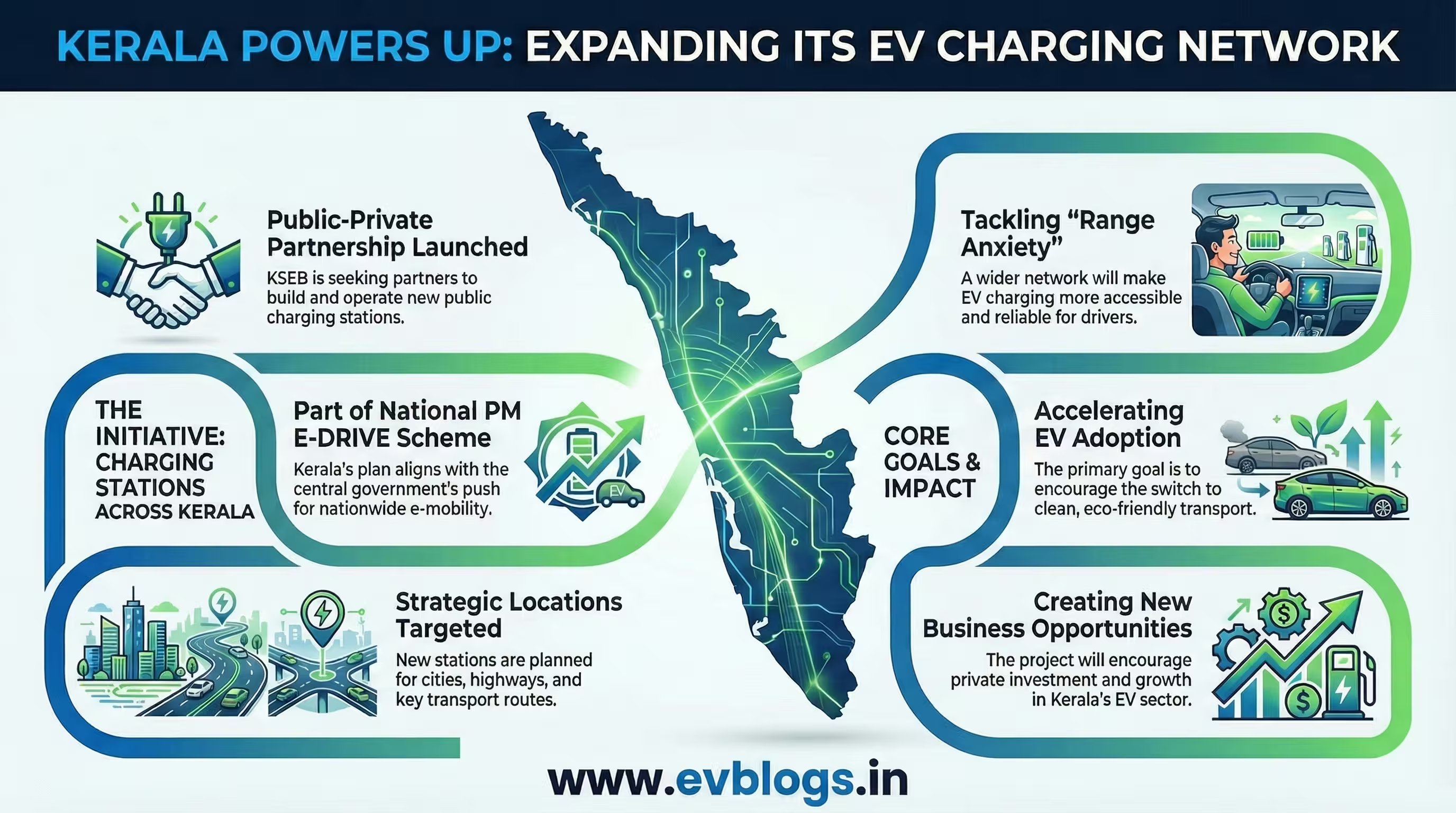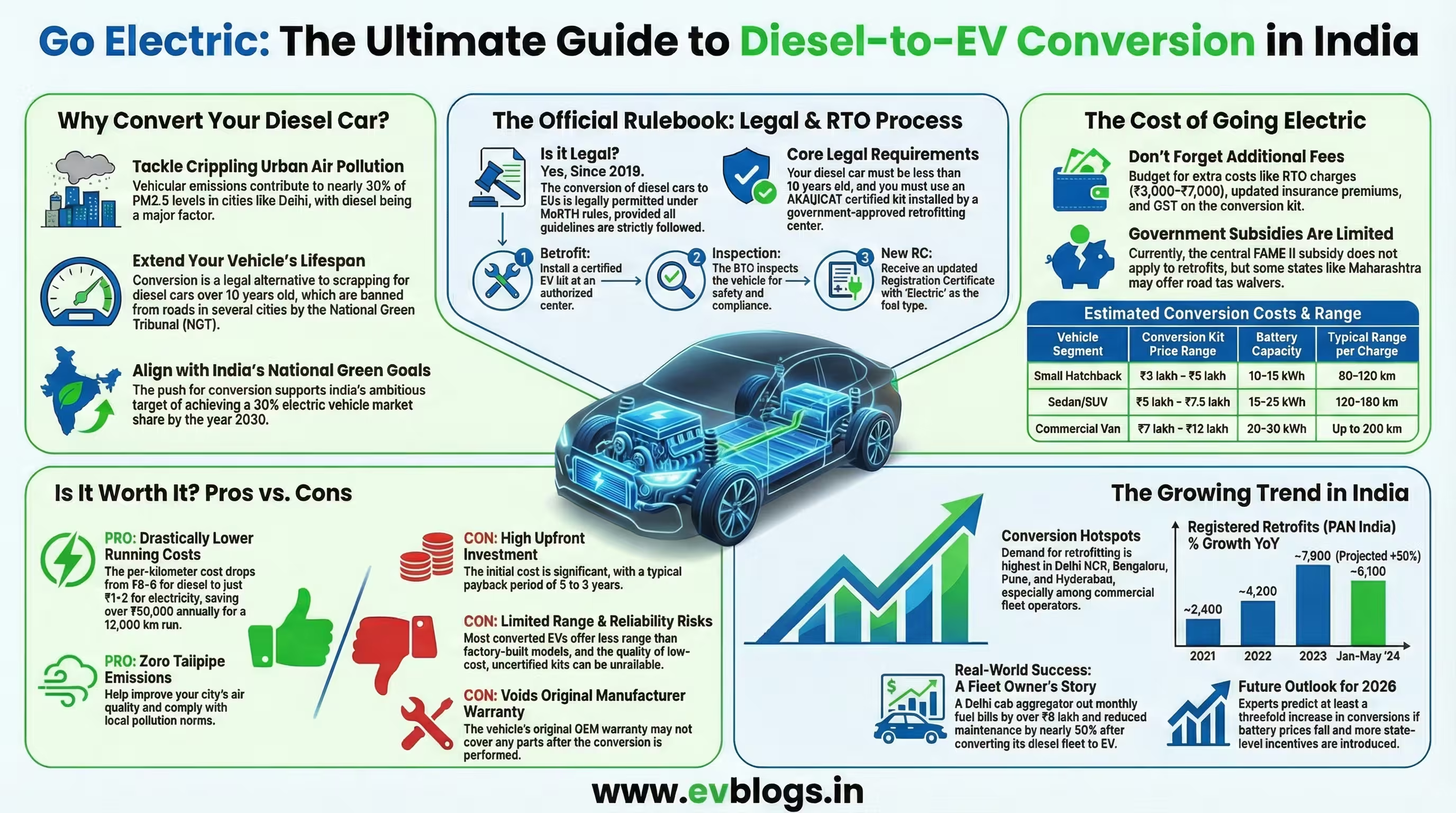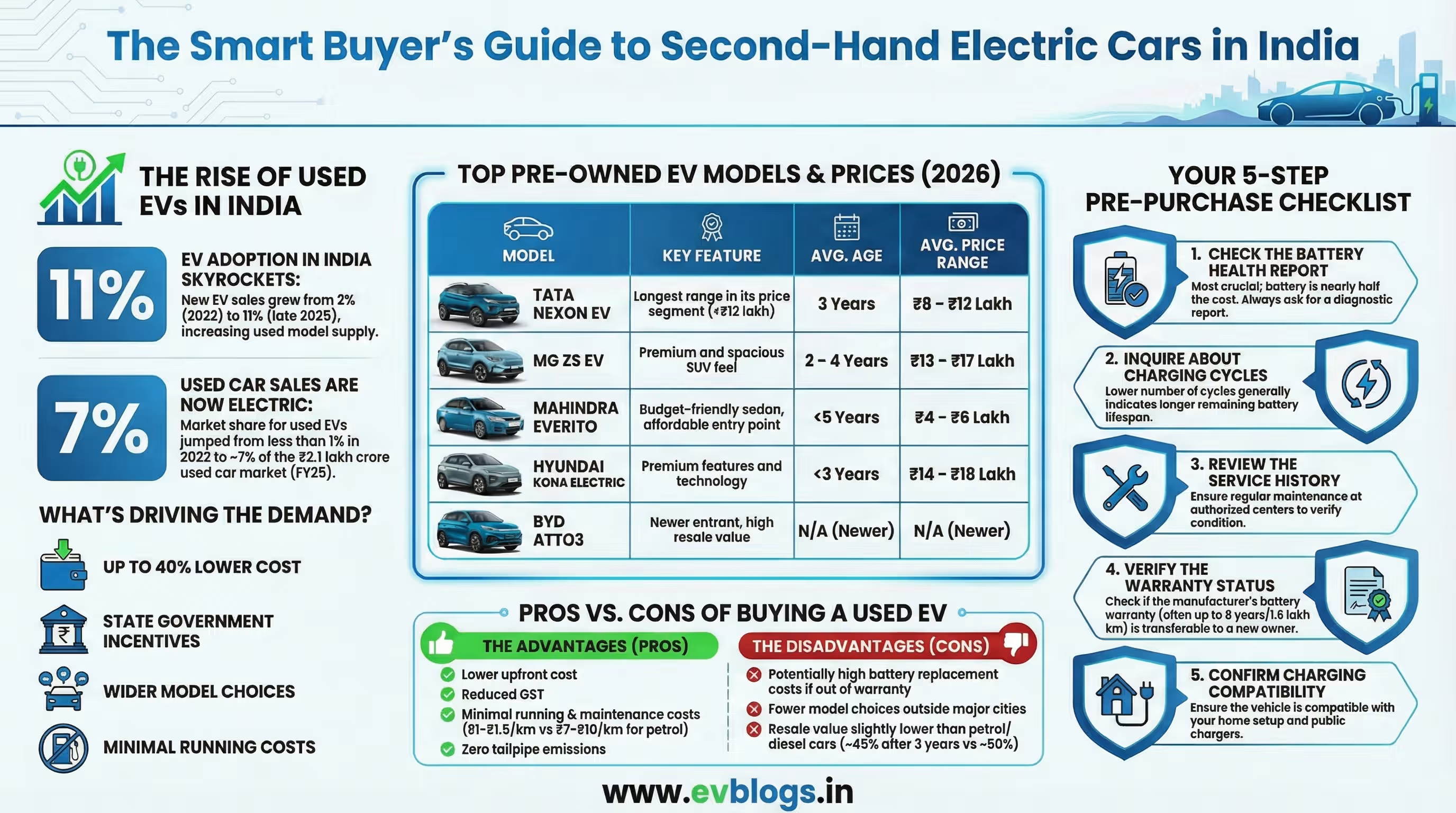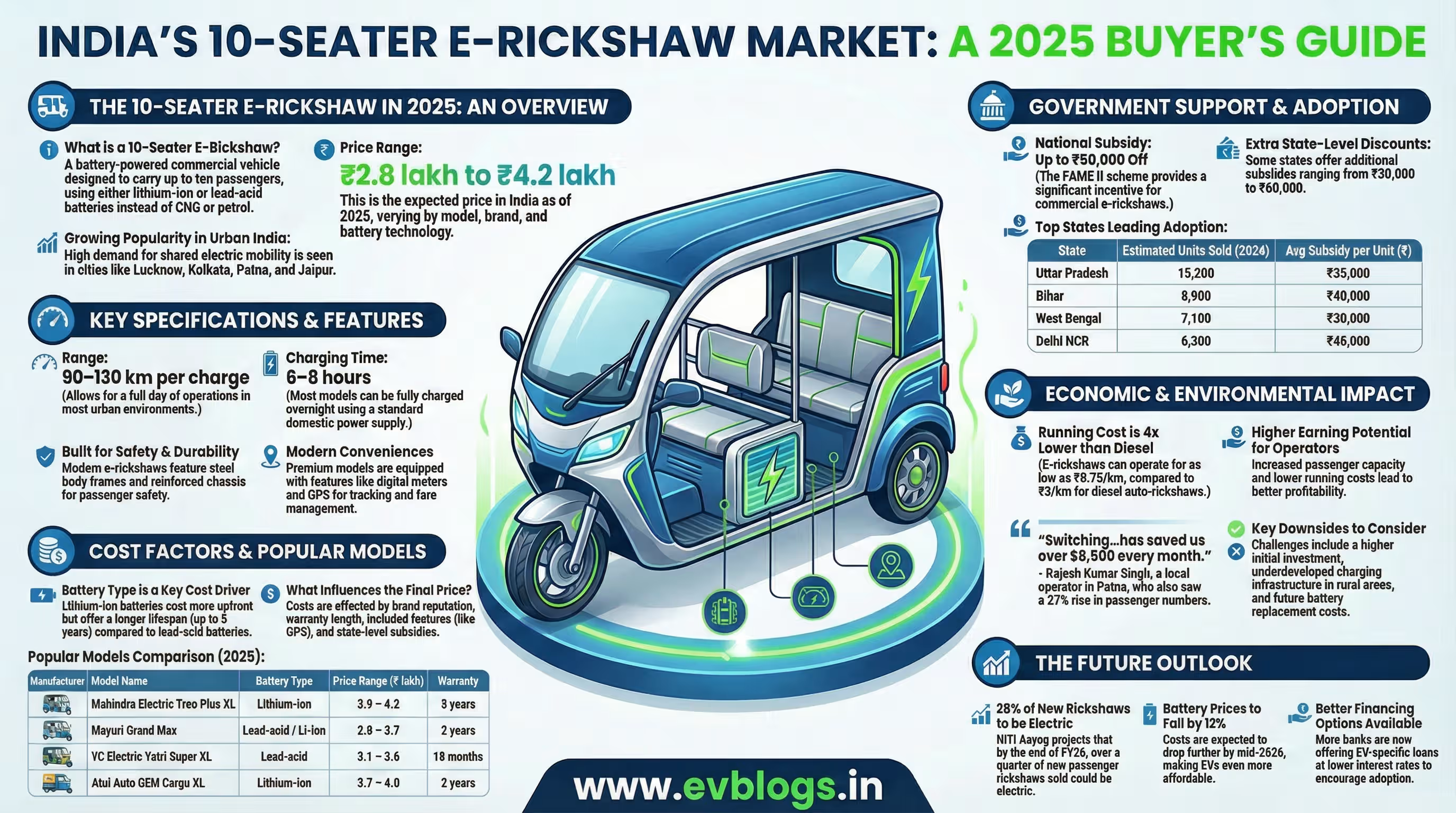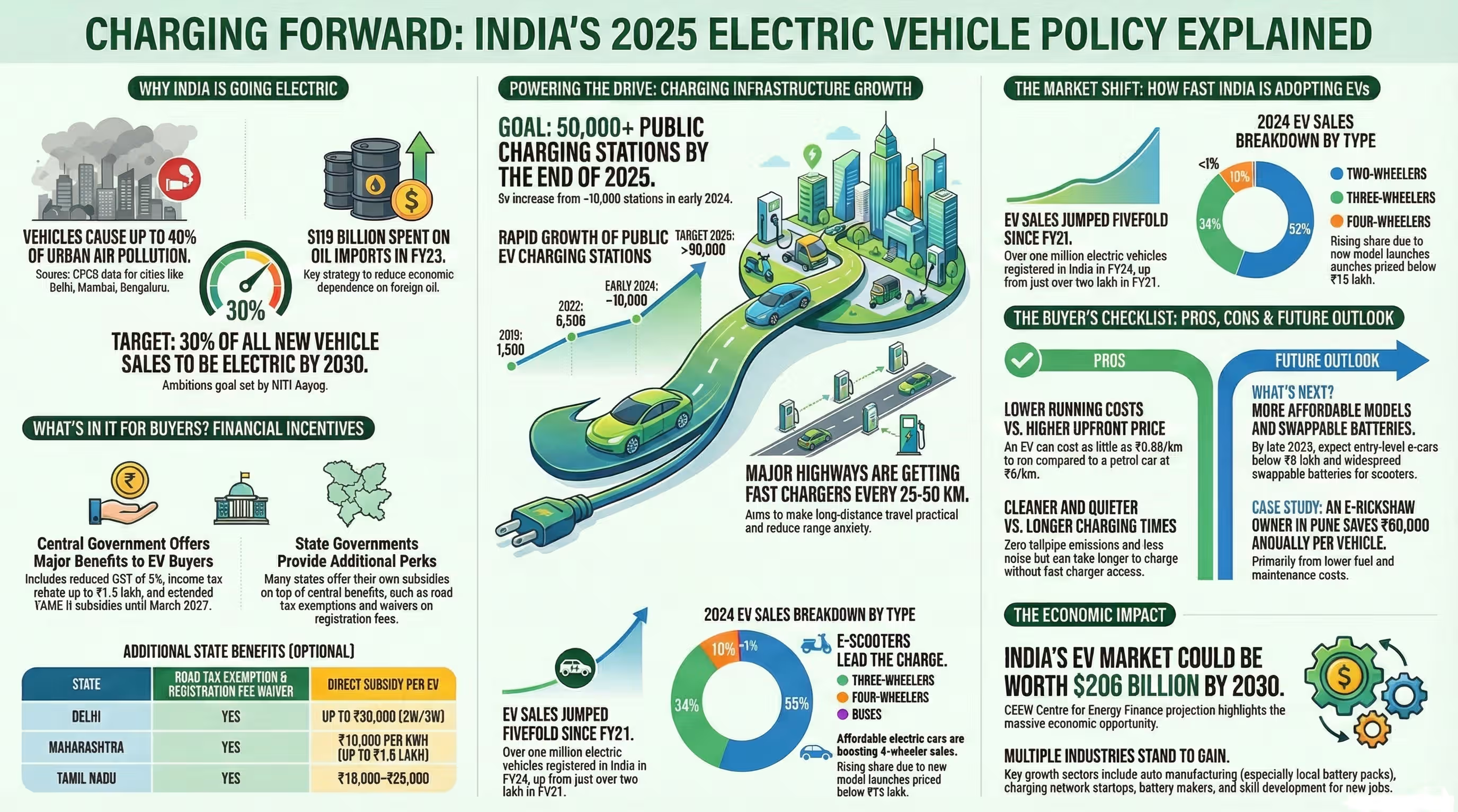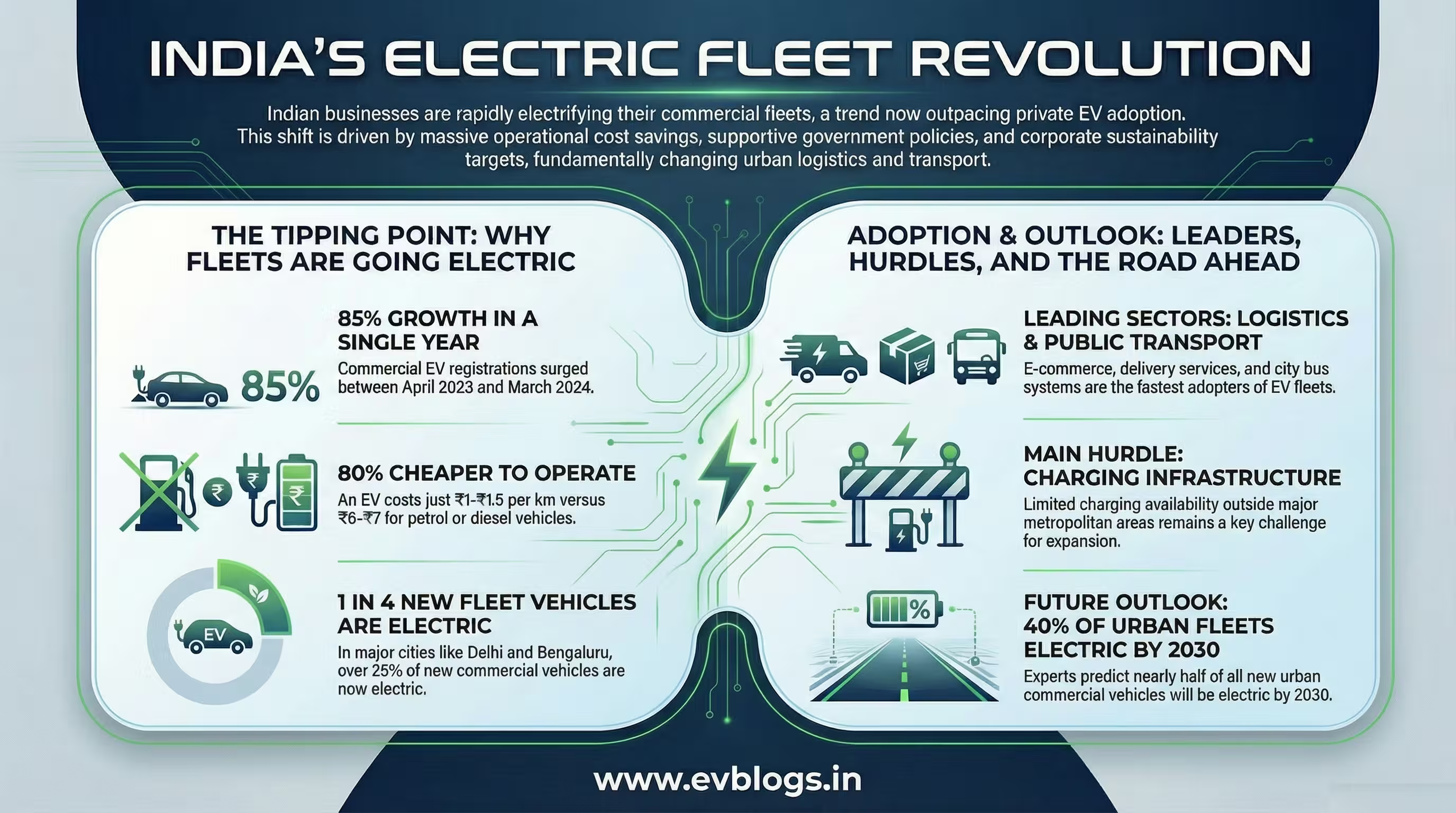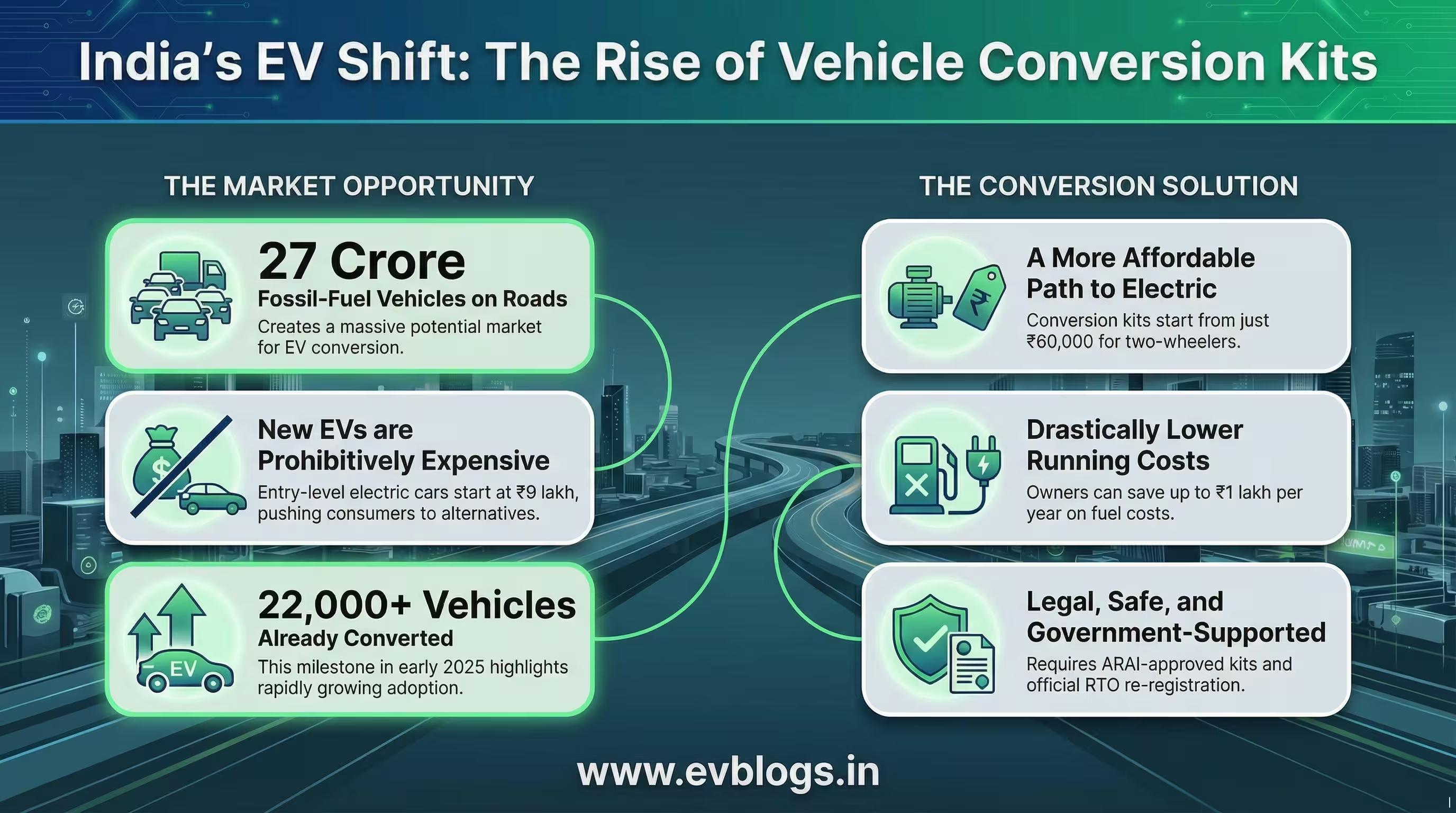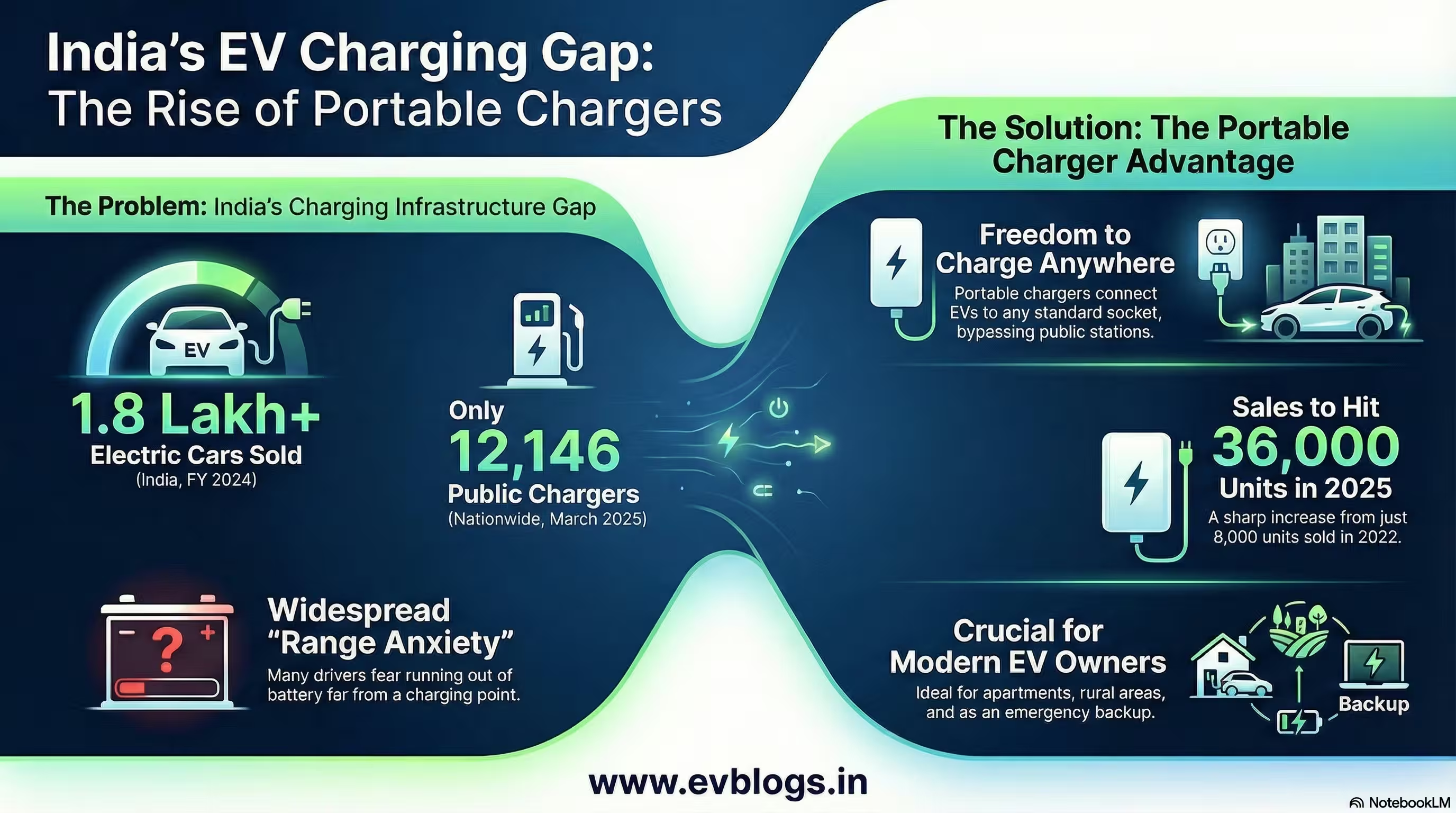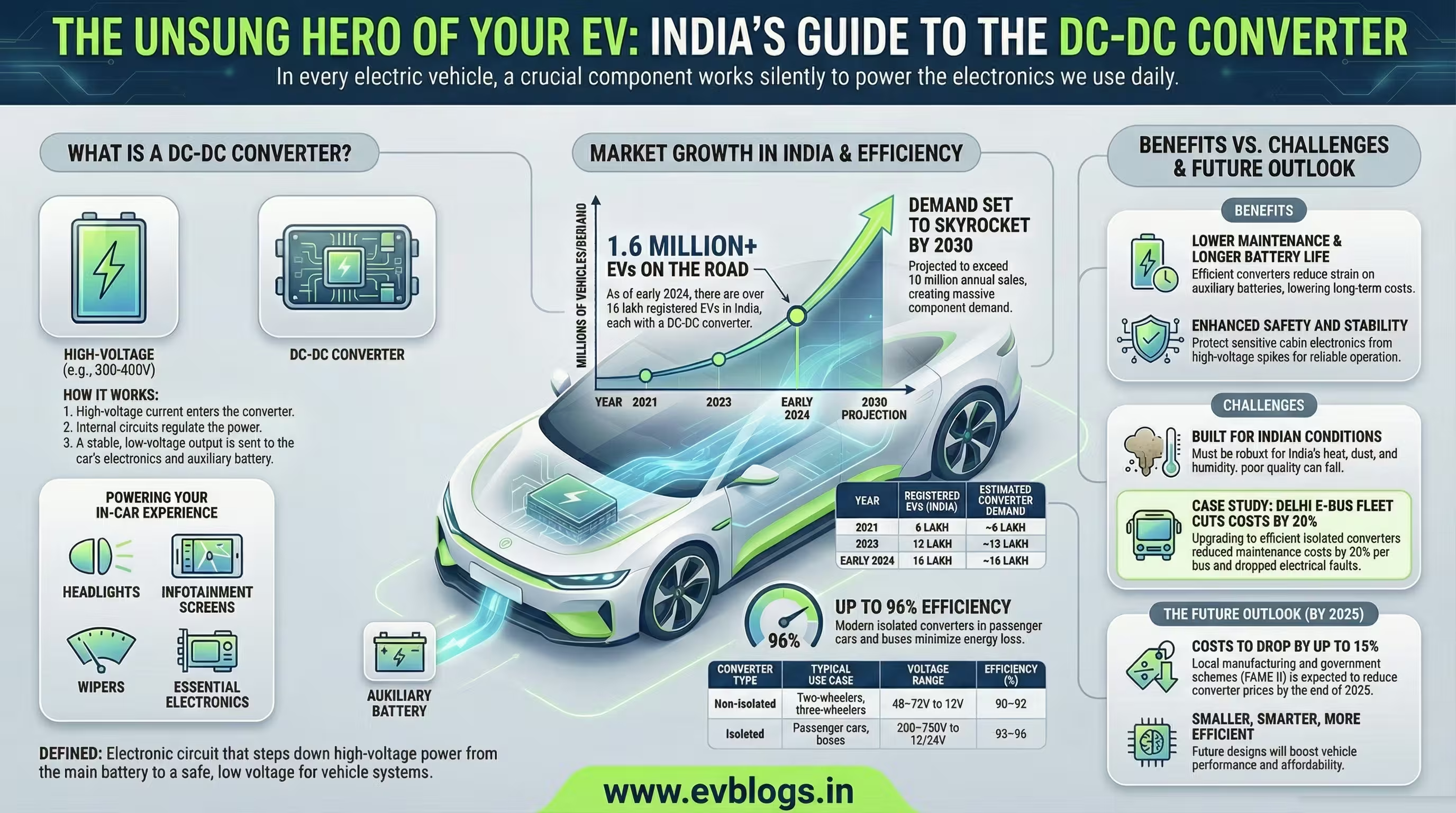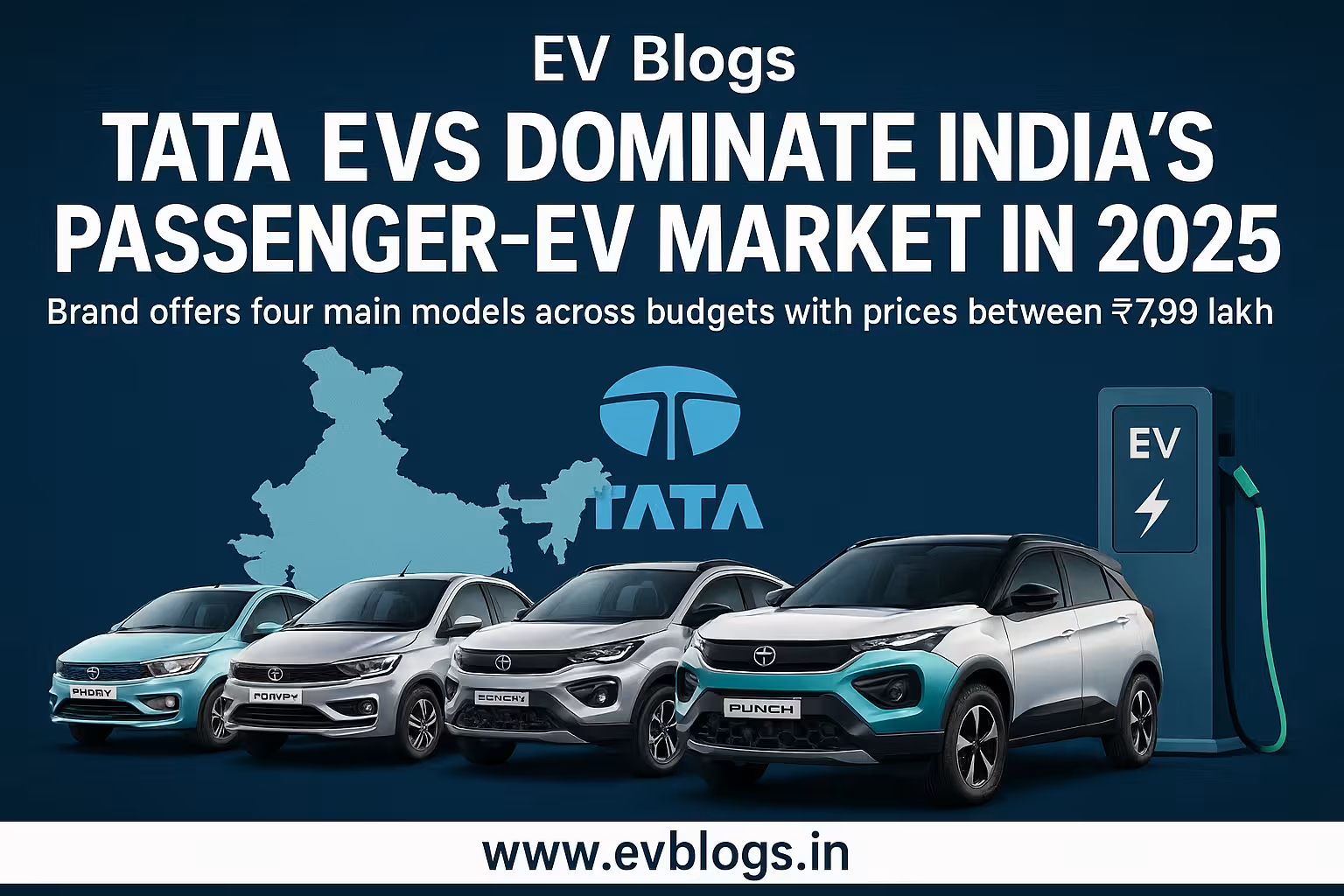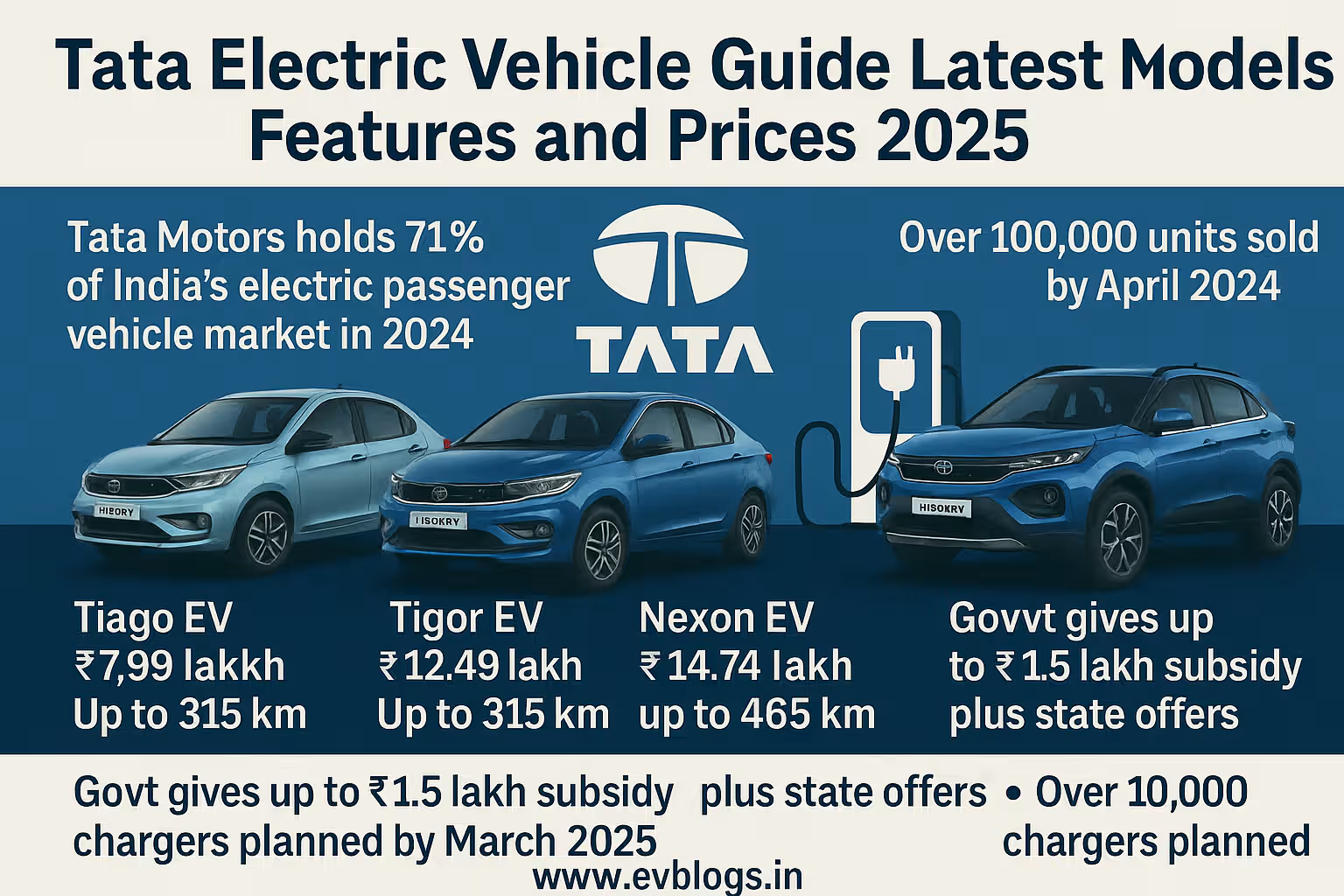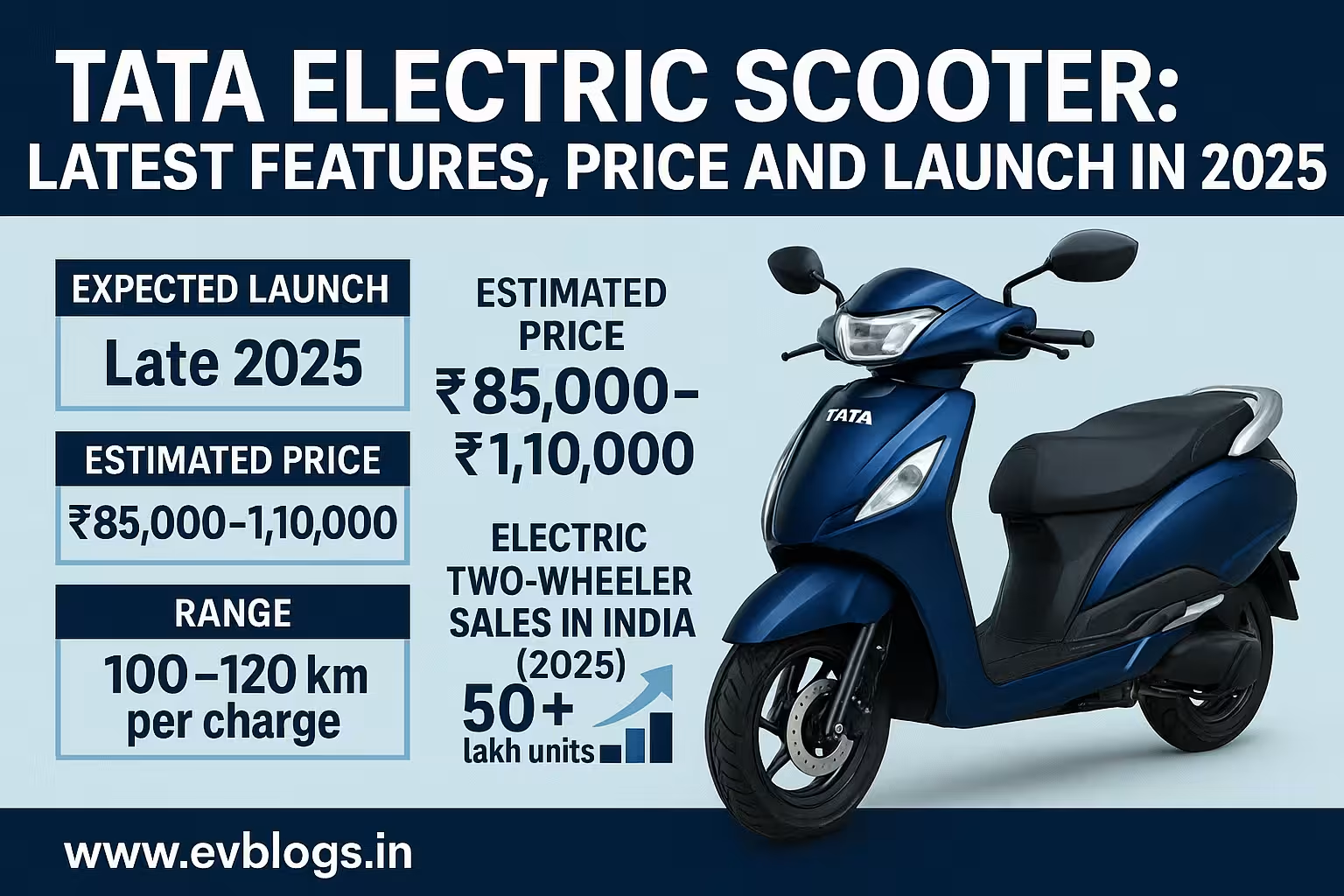Hedhvick Hirav
Hedhvick Hirav is a dedicated EV researcher and editor with over 4 years of experience in India’s growing electric vehicle ecosystem. Their contributions have been recognized in leading sustainability publications and automotive journals.
Summarize & analyze this article with
Choose an AI assistant and open this article directly:
Tip: if the AI doesn’t fetch the page automatically, paste the article URL manually.
NEW DELHI, Nov 16 — The Delhi government has sanctioned ₹16.99 crore to install electric vehicle (EV) charging stations at three key Inter-State Bus Terminals (ISBTs) in the city, according to a recent report. The move aims to boost EV infrastructure and support the transition to cleaner public transport options.
The charging facilities will be set up at Kashmere Gate, Anand Vihar, and Sarai Kale Khan ISBTs—Delhi’s busiest inter-state bus hubs that handle thousands of daily commuters. The initiative is part of the broader Delhi Electric Vehicle Policy, which targets rapid electrification of public and private transport modes in the capital.
Why it matters: Delhi is among India’s most polluted cities, and public transport electrification is a major policy focus. By equipping large bus terminals with EV charging infrastructure, the government aims to facilitate the adoption of electric buses and, eventually, other electric vehicles such as taxis and private cars. This is expected to help reduce vehicular emissions and improve air quality.
Key takeaways
- ₹16.99 crore has been allocated specifically for EV charging infrastructure at three major ISBTs.
- The project is aligned with Delhi’s 2020 EV Policy, which targets 25% of all new vehicle registrations to be electric by 2024.
- The move supports the ongoing procurement and deployment of electric buses in Delhi’s public transport fleet.
Details
The charging stations are expected to cater primarily to electric buses, which form a growing segment of the Delhi Transport Corporation’s fleet. However, the infrastructure may also be used by other electric vehicles, depending on capacity and demand. The ISBTs selected for the project are significant transit points not just for Delhi, but for the entire National Capital Region (NCR), connecting the city to neighbouring states.
Delhi has been expanding its EV charging network through public-private partnerships and government-funded projects. As of mid-2023, the city had more than 2,500 public charging points, with plans to further increase this number to support rising EV adoption.
No direct expert quotes found in the original source.
TL;DR: Delhi is investing nearly ₹17 crore to install EV charging stations at its three busiest ISBTs, reinforcing its push for electric public transport and cleaner air.
Sources
- google.com, 2023-11-16, Read original
Delhi has earmarked ₹16.99 crore to establish robust electric vehicle (EV) charging infrastructure at its three major Inter-State Bus Terminals (ISBTs)—Kashmere Gate, Anand Vihar, and Sarai Kale Khan. The initiative aims to install a network of fast and slow EV chargers to support the growing adoption of electric buses and other EVs in the city. According to officials, the project will include the installation of over 50 charging points, ensuring round-the-clock accessibility for public and commercial vehicles. This move is part of Delhi’s broader strategy to promote sustainable transportation and reduce vehicular emissions in the capital.
The Delhi government’s allocation of ₹16.99 crore aims to establish robust EV charging infrastructure at the city’s three major Inter-State Bus Terminals (ISBTs) — Kashmere Gate, Anand Vihar, and Sarai Kale Khan. The project will see the installation of multiple fast and slow chargers to cater to various electric vehicles, including buses, taxis, and private cars. This initiative is part of Delhi’s broader strategy to promote electric mobility, reduce vehicular emissions, and support the state’s ambitious Electric Vehicle Policy, which targets 25% of new vehicle registrations to be electric by 2024. The enhanced charging facilities at ISBTs are expected to encourage more commuters and transport operators to shift to electric vehicles.
In addition to the allocated ₹16.99 crore, the Delhi government’s initiative aims to establish robust EV charging infrastructure at the Kashmere Gate, Anand Vihar, and Sarai Kale Khan Inter-State Bus Terminals (ISBTs). The plan includes the installation of both fast and slow chargers to cater to a wide range of electric vehicles, including e-buses, taxis, and private EVs. This move is part of Delhi’s broader push to promote electric mobility and reduce vehicular emissions in the city, with a target to increase the share of electric vehicles in public transport and improve convenience for EV users at major transit hubs.
Sources & quotes
- Publishing domain: google.com
- Published date: 2025-11-16T16:34:16+05:30
- Original URL: Read original (news.google.com/rss/articles/CBMisAFBVV95cUxQY04zX054c3ZWa1k2b2tqWFQxNE5BZ… …)
Editorial Check
- Originality: 30 / 100 — The article appears to be a straightforward news report on government funding, typical of many EV infrastructure updates.
- Helpfulness: 65 / 100 — It provides useful information about new EV charging infrastructure in Delhi, relevant for local EV users.


